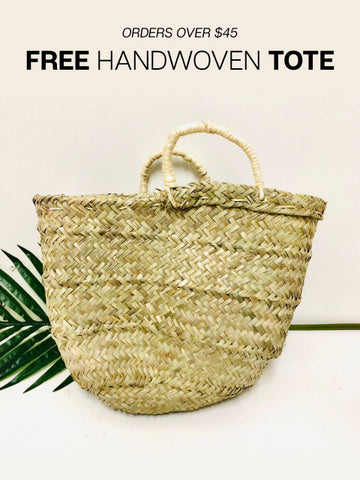I rode on the back of the motorcycle through the bumpy riverbed and headed north for more than thirty miles. I had been holding on for dear life to Maxime, my driver, as we road up the winding route towards Mirebalais, but at some point, we turned off the main road and I found myself in the riverbed. I had wanted to see the true countryside. And I had no idea how country I was about to get.
Cars are the best way to travel in Haiti, but often they are slow. The traffic is terrible, and motorcycles can often cut the time in half if you want to get somewhere quickly. Maxime was the only driver that I trusted to take me anywhere by motorcycle and the truck was not available. Earlier that morning I had been itching to get out of the city for once and see a part of Haiti I had never seen- the Artibonite.
As we turned off into the riverbank, women and children were bathing naked and playing in the river, which only had pockets of water at this time of the year. The entire journey was several hours and by the time we made it to Verettes, the bug guts were thick in my hair and my teeth were gritty from the dust. The motorcycle stopped suddenly in the middle of town. I met an artisan earlier that month who had invited me to meet his family. He was from Verettes and his family, he told me were bag and basket weavers. He said he was from the town, but I was about to find out that he was actually from the mountains surrounding Verettes- several long miles up- a minor detail that had been left out when he invited me to meet his family. He shook his head no when I motioned at Maxime standing by with his motorcycle. We would not be riding any further. The road ahead was only good on foot or by donkey.
Poor Maxime didn’t know what he had gotten himself into. He reluctantly parked his motorcycle on the side of the road by a dirt trail in hopes that it would be intact when we got back. It was not uncommon to lose “parts” that someone else might be in need of. Some local merchants assured us they would keep an eye on it. We started the hike uphill optimistically. Donkeys and other travelers were on their way down the mountain and up. Each donkey was laden with large woven baskets that helped itsowner carry the much-needed supplies to and from the mountain homes high in the hills above. These baskets and bags were what I was after.
We were on foot for more than two hours. I had not prepared myself for this. We didn’t have food and had very little water. Maxime was not talking to me anymore. I joked with him in a feeble attempt at an apology and told him I would make it up to him. Three hours later and winded, we arrived at the top of a ridge on the mountain to a little mud hut. The hut was about 8 feet wide and 12 feet long.
A family home.
The family sat outside chatting and laughing. They had large branches that looked similar to palm, but I wasn’t sure exactly what kind of plant they were. Piles of these branches were all around them and they sat there happily weaving baskets.
The family greeted me warmly when they saw me. It was not every day that a pale skinned American hiked their trail anddropped in on them. The younger children hid behind their mothers afraid of my skin color. I must have looked like a ghost to them. I was offered water and rum. There seemed to be a steady supply of rum in that house, and the men obviously enjoyed their drink, but there was little else. The family slept on the dirt floor in the hut. A small basin was used for washing and a corner of the house had a small fire going. The kitchen. Theyhad to walk the several hour journey daily to get drinking and washing water. Food was scarce. I asked my friend what his family did for a living other than baskets. Nothing, he said. It is all that there was to do. His father and cousins grew corn on the hillside for sustenance but other than that, the baskets were all that they had for their meager livelihoods. They also had an uncle who lived in the states who would send a precious several hundred dollars twice a year and that money would keep them alive.
My eyebrows rose as I thought of their very existence being dependent on weaving mule bags and baskets to sell at the local markets for their daily bread. No wonder so many of the children running around naked, playing with sticks and old bicycle wheels were showing signs of malnutrition. What hope was there for these mountain people to get out of the dire poverty that I saw around me?
They were happy people, and seemed to enjoy most aspects of their lives, but the stress lines on their foreheads also reflected back the daily struggle for survival to me.
I spent the day learning about how the baskets were made and how many they could sell in a month given their current markets. I knew I could do something to help.
I didn’t want to give them a false sense of hope, so I left that day with no promises or offers to buy, but my heart had been stirred. It would take very little on my part to double their sales and alleviate some of the stress of the daily struggle for them.
The next week I sent word that I wanted to order 100 small bags. I gave them the dimensions that I wanted. They were much smaller than the kind that they typically made for the donkeys, but I wanted to have a bag that a woman in America could carry around and find useful in her day-to-day life. We sold those 100 bags.
I ordered another round. Today we are doing a promotional on our website. If a person spends $45, they get a woven bag for free. My mind drifts to those very real and precious people sitting on a mountain side in the dirty with piles of branches around them hoping for a brighter future. The bags are raw and real and have the power to change lives, feed children, and send girls and boys to school. I will sell out this month, God willing,and then I will order some more. Maybe a wholesale buyer will want to order them in bulk? Who knows what that could do for this little community?
To me, this is the truth of buying and selling fair–trade. With very little effort, our purchases directly impact the lives of the poor. It’s a tan woven bag that doesn’t jump out as a fashion statement. It doesn’t appear to have any real value and it might not be a topic of conversation at a dinner party. But to me, this bag is of more worth than a Gucci bag. It is a symbol of empowerment, work ethic, building bridges and hope. It truly can change the world for that one family I spent the day with.
My ride back to Port Au Prince as the dusk settled was peaceful. I was dirty and exhausted from the ride and the hike. Maxime was still sore at me for what I got him into, but my heart was happy that I had found a small treasure up in the mountains above Verettes. Their treasure is now my treasure. A bag that I throw my water bottle, wallet, and keys into as I run an errand is much more than meets the eye. It is now hands-down my favorite bag. My Gucci Bag. I hope it will soon be yours too.

